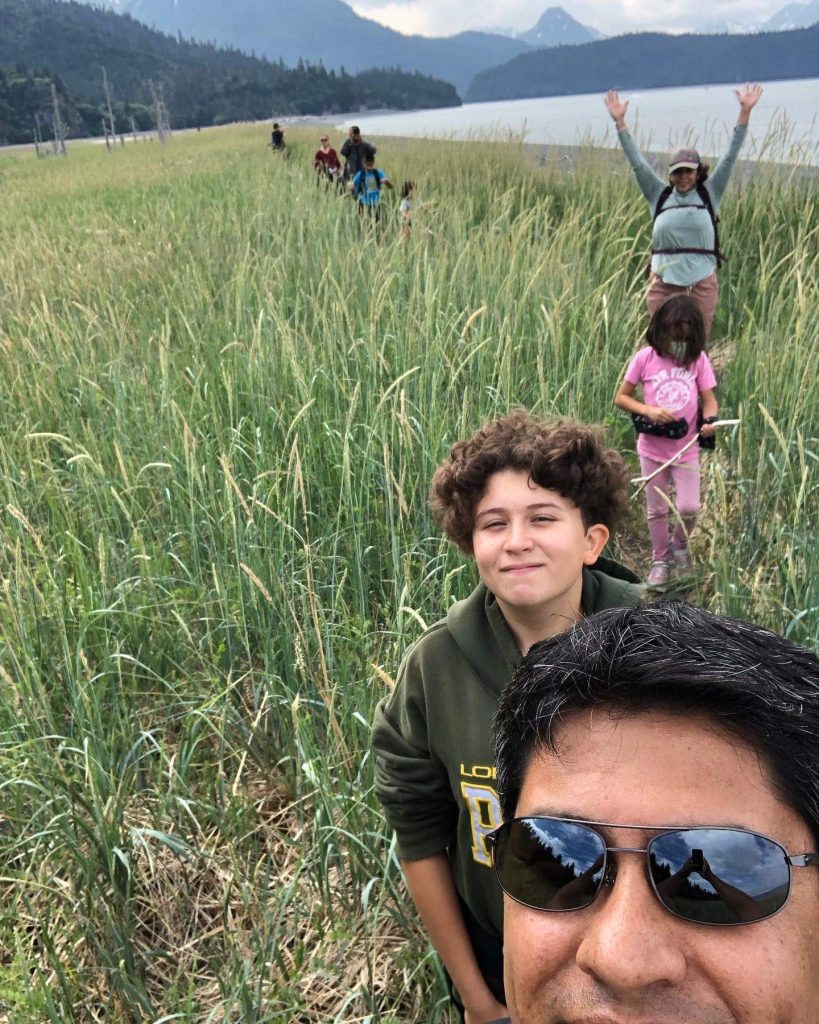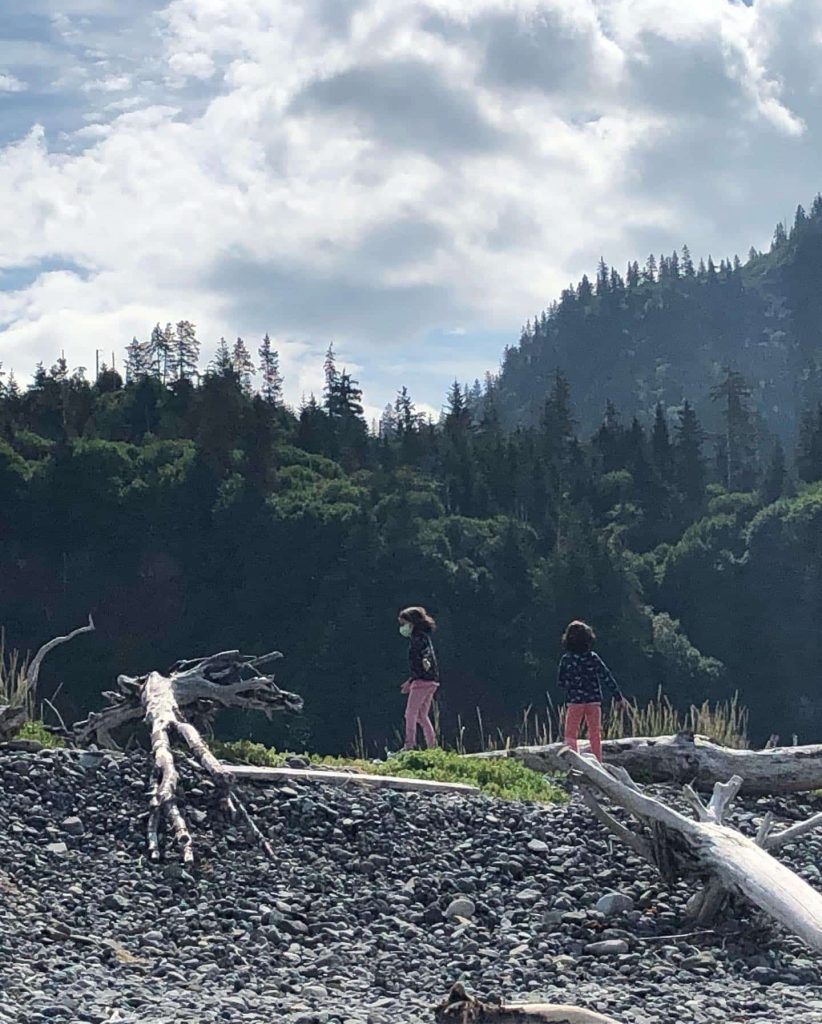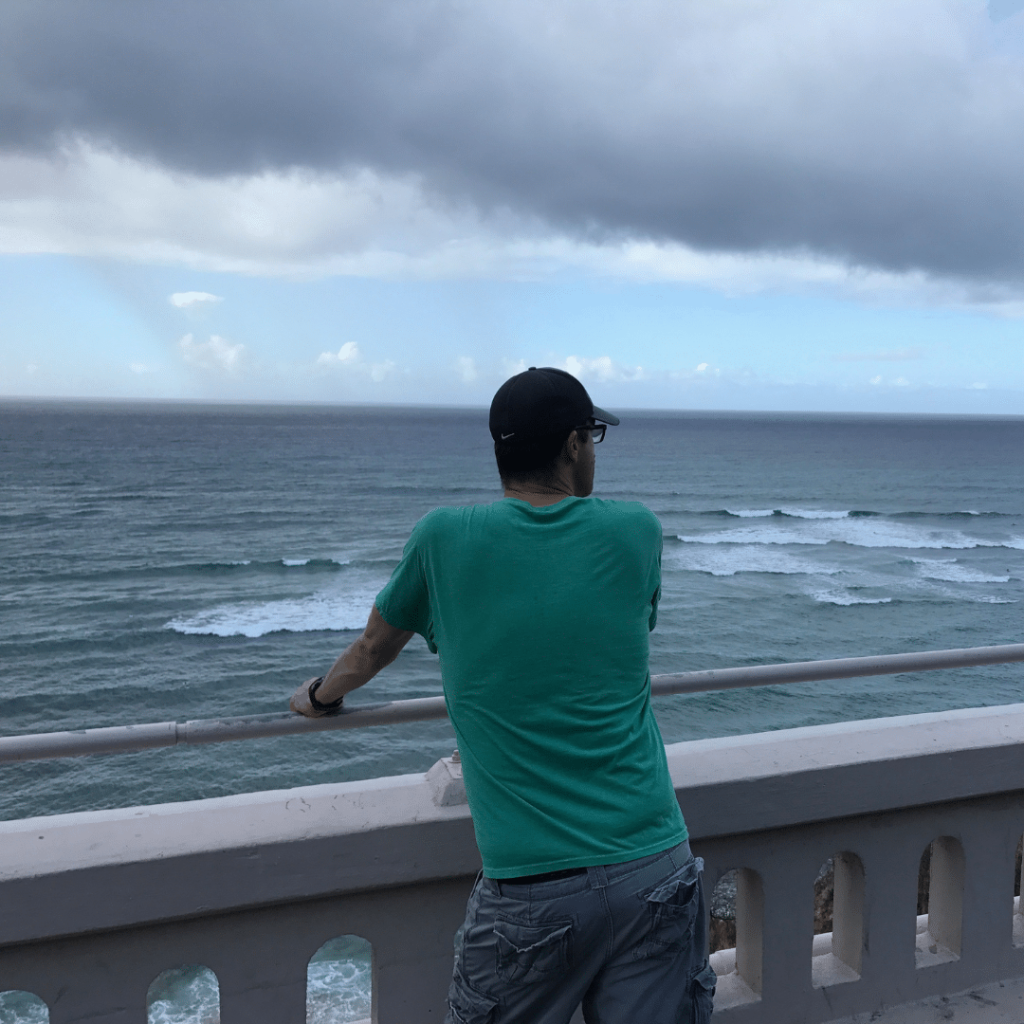Churches who want their pastors to be healthy often grant them a time away, or sabbatical, of some length every five or seven years. We have both taken sabbaticals in our time at City Church of Long Beach – both were really significant for helping us stay grounded and refreshed – and yet both were quite different. Here are a few raw reflections on the process for each of us.
When did you last take a sabbatical and how long was it?
Bill: I took a three month sabbatical in 2017.
Brenna: I took a “mini” sabbatical of one month this summer, 2022.
What were life & ministry like for you pre-sabbatical?
Brenna:
This little sabbatical was suggested and funded by a denominational grant in the wake of the pandemic, which of course was exhausting for so many of us in so many ways. I’m so grateful they took such practical, caring action to support their ministers! The truth was, though, that the primary source of my weariness was more personal. The 2021-2022 school year was full of changes and challenges for my family, especially as returning to full time, in-person instruction revealed a thread of hidden disability. Doctors and therapies and school advocacy, oh my. By summer we were starting to stabilize, but I was still so tired. The church was thriving in so many ways – I wanted to be thriving, too.
Bill:
Well, in 2016 I had made a mess of our church staff and had come to realize I was in a very unhealthy spot personally. So I took what might be called an emergency sabbatical. I was a solo/”lead” pastor at the time, which does not play to my strengths. I have just too many rough edges, and I’m not particularly well-rounded or strategic. So being the “lead” pastor wrecked both me and our team. It wasn’t just me who needed the break – our staff needed a break from me.
How did you and the church prepare for your sabbatical?
Bill:
The church only had a few weeks to prepare for my sabbatical, so it wasn’t a great set up. I essentially told my board that I was dying under the weight of leadership, and they graciously granted me a sabbatical to start within a few weeks. In that short time we brought in a coach to work with our staff to help them prepare; that coaching was so helpful. I also talked with friends and mentors, my therapist, about how to structure my time away.
Brenna:
It’s possible I over-prepared for this time away – I’ve been known to do that! And yet I also think that extended time I had knowing sabbatical was on the horizon was precious. Having that sense of winding things down over the last few weeks, checking meetings and things off my list and not adding new ones… It was so freeing. I tried to schedule for a mix of great family time, to enjoy each other after all difficulties of the last year, and also alone time that would feed my soul. Though COVID ended up messing with my plans quite a bit, I think I still ended up with that healthy mix. I’d like to believe I ended up with the sabbatical I needed, even if not exactly the sabbatical I envisioned!
What were the best and hardest parts of being on sabbatical for you?
Brenna:
The hardest thing… managing my expectations, of sabbatical and of myself. As an Enneagram 1, I like to do things “right,” which means I can make even rest into work! Am I doing it right, experiencing what I’m supposed to be experiencing? Then too, I had to remind myself that this was a mini, one month long – wonderful, but different than the 3-6 month long breaks I’ve had friends like Bill take. So of course my experience would not be the same.
The best part… Three things stand out.


- Taking a big family vacation, all the way to Alaska. I’m so grateful the denomination allowed some of the grant funds to go to joyful activities like that. This was the first thing I did, and that radical change of scene helped me jump into rest and recreate mode faster. Plus I always learn more about my family in new settings!
- On the flip side, having a good amount of time at home, to just be quiet, cook, declutter and “nest” without other to-do’s on my list. I’m definitely a homebody, and this filled my cup.
- Getting away on my own for 48 hours of prayer and reflection. After pages and pages of journaling, pouring the story of my past year out on paper, I couldn’t believe how different my perspective was. It was hard work, but I came out of the time really renewed and committed to making this an annual practice.
Bill:
There were a bunch of best things about the sabbatical:


- My first day on sabbatical I left for a 7 day retreat of silence at a local monastery. Talk about skidding to a crashing halt. I’m a raging extrovert, and yet that was one of the best weeks of my life. (Brenna : you can see some overlaps here between our experiences.)
- I swapped out the SIM card in my phone and gave my new number only to my family and my best friend.
- I had never studied the Enneagram, so I dived in deep, read a book, hired a coach, and did a ton of reflection. I ramped up meetings with my spiritual director and did a lot of work trying to understand myself as an Enneagram 8.
- I got clarity on how I’d led the staff poorly and how I needed to change in order to become a different kind of leader.
Probably the hardest part was facing my sadness about being an Enneagram 8. I was so tired of doing damage to people. So I really thought hard about walking away from City Church. A key moment in facing this sadness was when I got real honest with God, admitting that I wasn’t sure if I had it in me to pastor still. I wasn’t even sure if City Church could endure me. I took a two-hour walk praying this through and came back to the house and instinctively started setting up folding chairs in my backyard. While putting out those chairs I realized that even if I’d done too much damage to City Church, I was still called to pastor. We could gather enough neighbors in the backyard to become a church – and I would do it whether I was paid or not.
What were the best and hardest parts of being on sabbatical for the church?
Bill:
It was not a great time for the church – I’d left suddenly and with the staff in disarray. So I’ll let Brenna answer this question for my sabbatical.
But I’ll mention a couple of best things about Brenna’s sabbatical. For one, our board stepped up in new ways to partner with me and to compensate for some of my weaknesses. I had not leaned on them as much as I could have before, so that was a gift. Brenna is the better supervisor and does the lions’ share of it on our team, so this forced me into facing my fears of leading the staff team again. And I’d actually grown since the debacle of 2017! There were some really sweet times with the staff. And in general I’d say the church realized even more deeply on that short sabbatical what a boss pastor Brenna is. So that’s been great to see her honored even more upon her return.
Brenna:
Yes, this question is actually easier to answer for the other person! Because you’re the one who was actually there with the church. I think sabbatical was much harder on CCLB during Bill’s absence. That’s partly because it was longer, but mostly because there was an underlying worry that he might not really come back. That the church might not make it.
Still, I think Bill was so loved, he’d poured so much goodness into so many lives (the man is a true shepherd!) that people wanted to give him the time and do whatever they could to keep the church going, at least until he got back. So people really pulled together, and it was beautiful.
I’d also say that, difficult as the emergency sabbatical was, it set the stage for a reset the church really needed. Sometimes you just have to step back to get clarity on things, and Bill was definitely in that spot. I did a lot of praying and soul-seeking that summer, too, about who I was as a leader and what I needed in ministry not just to thrive personally, but to steward my gifts well. So I was in a much stronger spot to lead collaboratively with Bill once he got back.
Any tips/lessons learned you’d want to share with other leaders considering sabbatical?
Brenna:
For anyone like me who’d be tempted to make rest work, I tried to resist that pull by only giving myself a few basic guidelines to keep nudging myself into practices of restoration – (1) keep off social media and work email, and (2) block phone alerts for all but family.
Other than that, I just asked myself, (3) will this activity be life-giving? So I hiked to a glacier with the family, decluttered my house, took lots of walks and naps, listened to some good podcasts, journaled, and watched a few movies with my spouse… All of these passed the self-care, true “re-creation” test for me.
Bill:
Here are a few thoughts:
- Ideally, don’t wait until you’re dying to take a sabbatical. Be intentional about sabbaticals – they should be part of the job description/contract, and hire a qualified coach to help both pastor and church prep.
- Have a few good things lined up for your sabbatical, but don’t fill the time tightly. Unstructured time is part of the gift.
- If possible, do a little travel. I really didn’t do any on my sabbatical because of our kid’s ages and my wife’s job, and that was a loss.
- Ask the hard questions: Am I still called to pastor? Is there any other job I could do that would fit into my calling better? What in my spiritual life is actually life-giving and what is not? What are the ways my family and friends need me to grow? (Brenna: Agreed. My one big question/goal was digesting the emotions and lessons of the past year. Lining up extra time with a counselor, friend and/or support group to process these things with you is also a big help.)